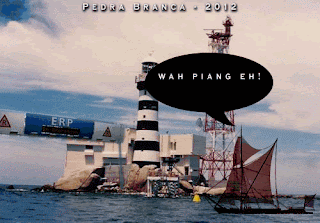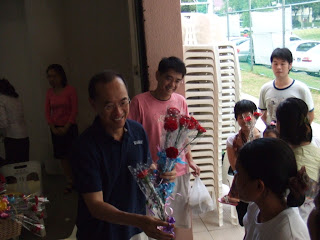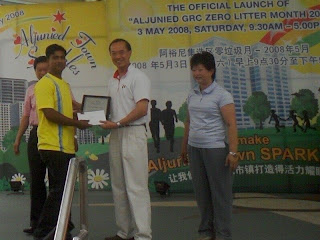[Bloggers' feedback]
Since Minister has written about Malaysia, I shall do so to albeit in a different vein.
The Malaysian Government will respond to wild and baseless allegations raised by bloggers in cyberspace.
When will it be Singapore's turn?
So far, politicians who blog have steered clear of this. Often, I see and read what things that appear in mainstream media replying to what I write online.
In fact, recently, a writer from The Straits Times had suggested the convergence of online media and mainstream media. This would allow a free flow of content between the two. I am unsure of the effectiveness of such a suggestion though.
Many young Singaporeans do not read the newspapers nor keep in touch on current affairs in Singapore. Is the answer to engage online? It is a plausible solution but to what extent it would work is still a big question mark.
Further, many laws that apply online and offline may deter bloggers from fully expressing their views. This is because of the invisible line that should not be crossed. Take for example the Malaysian blogger Raja Petra had crossed that line and was dealt with. In Singapore, one is well aware of the invisible out-of-bound markers that in place. I remember reading what Minister George Yeo had said about the invisible OB markers in the past - you would not know what things people might come up with and hence there are these OB markers in place. The presence of these OB markers are dangerous because anything that is mild may be construed as something intentional and damaging against the greater good of society.
Just like how the game is played in politics.
Recently, I went to view Matthew Ngui's work at the National Museum. I was invited for the opening by my colleagues. Matthew's work is about different points of view and has some political undertones on one's view on democracy. In some sense, it is about pluralism (where individuals have different points of views). I hope he was not trying to portray the rigidness and one-sided view of things.
He also talked about practicality and working within boundaries as opposed to breaking out of boundaries (which I think would be more creative). But at least he tries to do something within legal boundaries rather than stay silent.
And that is what I think may be lacking here. Let's try to push it bit by bit. Until we are finally told to stop.
This is sort of like the incrementalism ideology of public policy. But that is another thing altogether.














